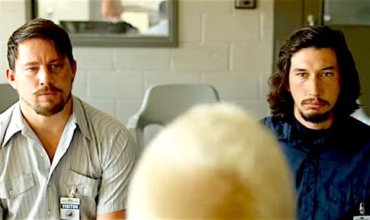JOY, the latest movie collaboration of Jennifer Lawrence, Bradley Cooper and director David O. Russell, seems at first, to be about Joy Mangano, the woman who invented the Miracle Mop. During the process of making the movie, the director explained to Mangano that it would be half-fictional. A quick investigation of her biography on the Internets proves this to be so. This is the sort of thing film reviewers waste their time doing, so you don’t have to. A Vanity Fair story makes it clear that the subject of the movie collaborated with Russell’s take. Previous biographers have had difficulties in finding any information about the Miracle Mop inventor that isn’t part of the publicity for her company or the Home Shopping Network (HSN). Unusually, for our tell-all times, it seems Joy Mangano values her privacy and this authorised, dramatised fiction could be a clever way to hide in plain sight.
The resulting movie is a shaggy-dog story with fantasy elements. As the main part of the film begins, Joy is in her early thirties, has two children, is in a low-paying job and caring for her extended family; this includes her ex-husband, father, mother, grandmother and half-sister. At one point, all nine of them are living in the same house. She needs help from her father’s ailing metalworking business to make her mortgage payments. The family is close-knit, perhaps a by-product of living in each other’s pockets, but they do not live together harmoniously. Theirs is a fractious, argumentative existence. Joy’s mother Terri (Virginia Madsen) is a shut-in who lives vicariously through soap operas. Father Rudy (Robert De Niro) sees himself as the patriarch of the family, despite being a borderline financial failure who gives terrible advice. Joy’s grandmother Mimi (Diane Ladd) is her inspiration and it is she who encourages Joy through her childhood.
Joy used to be a dreamer, but the various set-backs life has dealt, have turned her into a frustrated woman who lives for others and never gets her own needs met. In an attempt to redefine herself and literally rediscover Joy, she sets on the road to inventing a super-absorbent, self-wringing mop. The premise may sound laughable. It’s not exactly THE STORY OF ALEXANDER GRAHAM BELL (1939–with Don Ameche). That Bell guy created something that changed the world. Russell is more than aware he is taking a different approach to the usual folklore of The Great American Inventor. As we are informed from the opening moments, the movie is a tribute to Joy and other brave women whom the director has known. She changed her own world and in so doing, changed business and marketing–and what could be more important in modern day America?
As in Russell’s SILVER LININGS PLAYBOOK (2012) and AMERICAN HUSTLE (2013), the movie’s trump cards are Cooper and Lawrence. Cooper plays Neil Walker, an inspirational executive at the new, televised shopping network, QVC. He helps Joy understand how she can sell the Miracle Mop to the public using the power of television dedicated to individual products. Cooper gives weight and presence to a character who could be a one-dimensional smooth talker. As always, Lawrence takes the ball and runs with it. It is clear what Russell gets from the collaboration. Lawrence anchors the movie and within moments of her appearing, most of the audience will want the struggling single mother to overcome the considerable obstacles to her success. Joy doesn’t set out to create a home shopping empire, at first she just wants to invent a product and make a tidy profit. She wants to get ahead, not live the American Dream. Her journey is beset with bad advice and dishonest business partners. She needs considerable inner strength to make her way through the unfamiliar commercial world.
As in AMERICAN HUSTLE, somewhere along the way, the story drifts. On balance, I prefer JOY because it a personal tale altered with the permission of the biopic’s subject where as AMERICAN HUSTLE is recent history mishandled as a Scorsese’s knock-off. Ultimately JOY succeeds because Lawrence is the engine pulling this train. The journey has enough of the right scenes and Lawrence plays the hell out of them.
JOY is in wide release in Australian cinemas and runs for 2 hours and 4 minutes. (6/10)


